Lithium is my guess.I wonder if he was on ADHD meds or something similar. The media always tries to hide that.
Colleges
- American Athletic
- Atlantic Coast
- Big 12
- Big East
- Big Ten
- Colonial
- Conference USA
- Independents (FBS)
- Junior College
- Mountain West
- Northeast
- Pac-12
- Patriot League
- Pioneer League
- Southeastern
- Sun Belt
- Army
- Charlotte
- East Carolina
- Florida Atlantic
- Memphis
- Navy
- North Texas
- Rice
- South Florida
- Temple
- Tulane
- Tulsa
- UAB
- UTSA
- Boston College
- California
- Clemson
- Duke
- Florida State
- Georgia Tech
- Louisville
- Miami (FL)
- North Carolina
- North Carolina State
- Pittsburgh
- Southern Methodist
- Stanford
- Syracuse
- Virginia
- Virginia Tech
- Wake Forest
- Arizona
- Arizona State
- Baylor
- Brigham Young
- Cincinnati
- Colorado
- Houston
- Iowa State
- Kansas
- Kansas State
- Oklahoma State
- TCU
- Texas Tech
- UCF
- Utah
- West Virginia
- Illinois
- Indiana
- Iowa
- Maryland
- Michigan
- Michigan State
- Minnesota
- Nebraska
- Northwestern
- Ohio State
- Oregon
- Penn State
- Purdue
- Rutgers
- UCLA
- USC
- Washington
- Wisconsin
High Schools
- Illinois HS Sports
- Indiana HS Sports
- Iowa HS Sports
- Kansas HS Sports
- Michigan HS Sports
- Minnesota HS Sports
- Missouri HS Sports
- Nebraska HS Sports
- Oklahoma HS Sports
- Texas HS Hoops
- Texas HS Sports
- Wisconsin HS Sports
- Cincinnati HS Sports
- Delaware
- Maryland HS Sports
- New Jersey HS Hoops
- New Jersey HS Sports
- NYC HS Hoops
- Ohio HS Sports
- Pennsylvania HS Sports
- Virginia HS Sports
- West Virginia HS Sports
ADVERTISEMENT
You are using an out of date browser. It may not display this or other websites correctly.
You should upgrade or use an alternative browser.
You should upgrade or use an alternative browser.
Highland Park (Chicago) Shooter is a white male 18-20 ...How long before conservatives start defending gun violence by saying he's mentally unstable?
- Thread starter RayGravesGhost
- Start date
- Status
- Not open for further replies.
Lithium is for Bi-Polar disorder.Lithium is my guess.
Ask me how I know.
Because people traffic them in...
But that's against the law!! How could that happen???? WON'T SOMEONE PLEASE THINK OF THE CHILDREN!!!!!!!

The top four deadliest cities -- St. Louis, Baltimore, New Orleans and Detroit -- have Democratic mayors, sheriffs, prosecutors and city council leaders. The fifth, Cleveland, has Democrats across the board with the exception of an unaffiliated sheriff who was appointed to his position.
... and Ted Bundy was a democrat.
... and Ted Bundy was a democrat.
Hey Ray, this piece of shit look mentally stable to you????
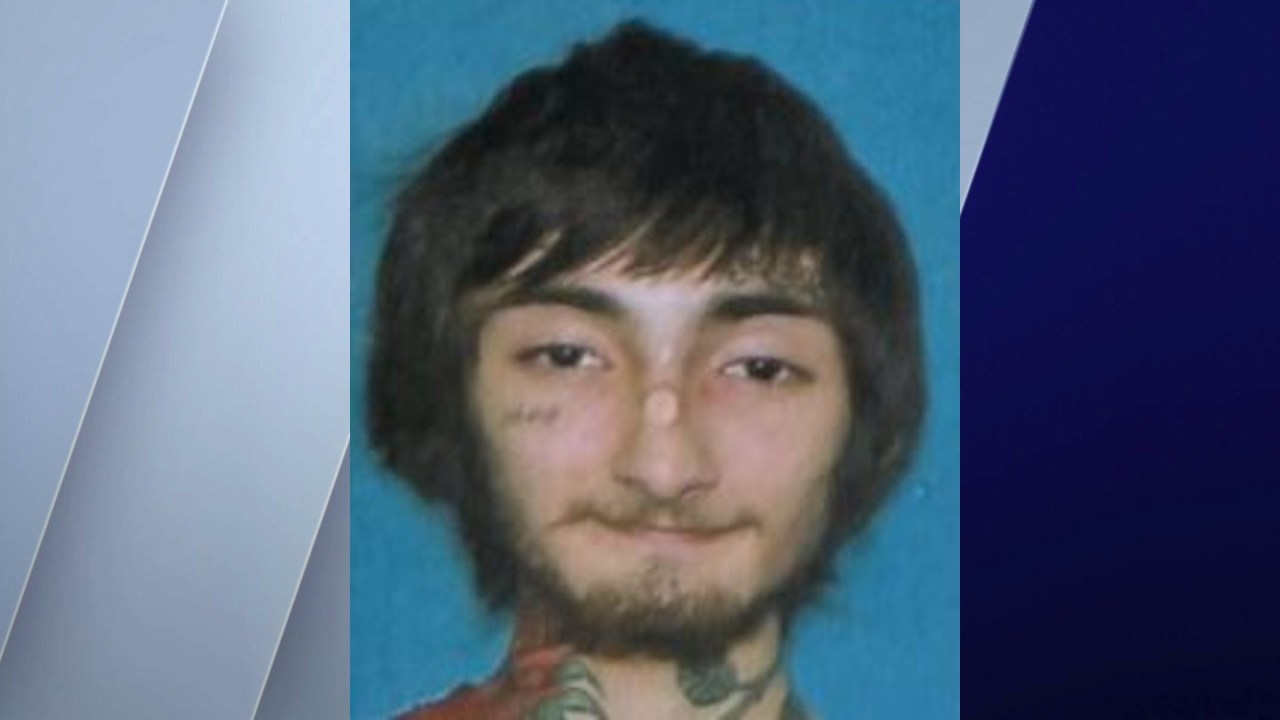
 www.kron4.com
www.kron4.com

What we know about the Highland Park Parade shooting suspect
HIGHLAND PARK, Ill. — Officials have captured Robert “Bobby” Crimo III, the suspect in the Highland Park parade shooting Monday morning that left seven dead and thirty others injured. Robert “Bobby…
Bipolar and schizophrenia.Lithium is for Bi-Polar disorder.
Ask me how I know.
No, but many are misdiagnosed with ADHD. This is to subdue them to keep them quiet during school. There could be many other deeply rooted problems that were skirted to prescribe Ritalin. For instance: a large % of the population was diagnosed with ADHD that simply had restless leg syndrome or OCD, etc. In most cases of manic depression, the patient will also have anxiety, both usually go hand in hand.But not ADHD.
One more item. When Ritalin has been prescribed the long-term side effects can be catastrophic. Many times the patients have become manic after they come off the subdued effects of Ritalin. This can create violent mood swings and hallucinations.
Last edited:
Another thread blows up in Ray Charles's ghost face.
Tell me who runs the cities where these shootings occur??? PLEASE help us all here, son!You wouldn't want to look at Gun Murder Rates by State would you?
Here's the top 15 as of 2015
Gun Murder Rate(per 100,00)
Louisiana 8.1
Missouri 6.9
S Carolina 6.4
Delaware 5.5
Alaska 5.3
Maryland 4.7
Georgia 4.5
Tennessee 4.5
Mississippi 3.9
Michigan 3.9
Nevada 3.9
Pennsylvania 3.9
Oklahoma 3.8
Arkansas 3.7
North Carolina 2.5
In THAT city...the mayorThat may well be true...
But the states I asked the question of have a lot of republican governors
Who's more powerful...a governor or a mayor?
2018 report:
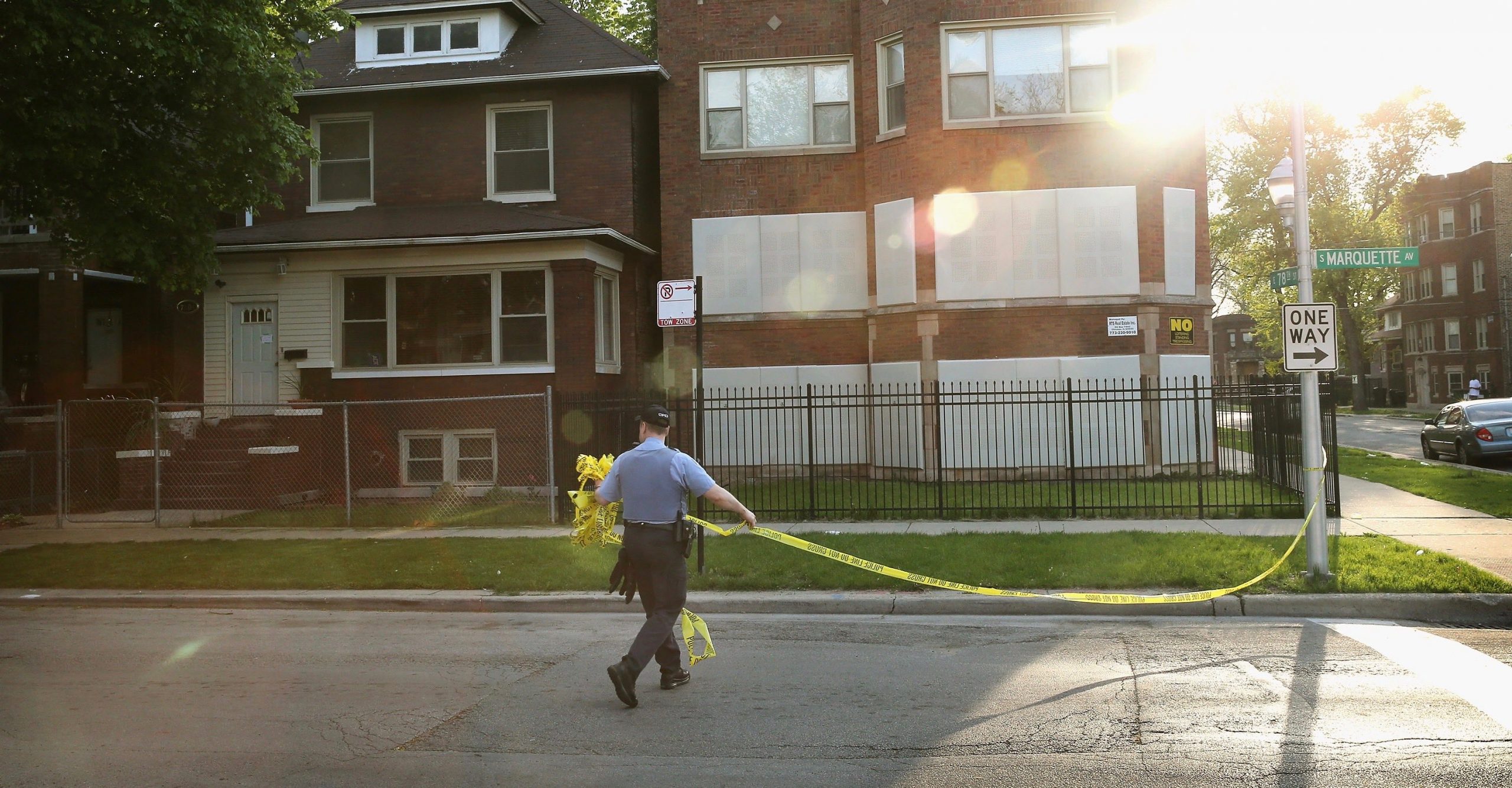
 www.thetrace.org
And someone explain this statement to me:
www.thetrace.org
And someone explain this statement to me:
"To be sure, Chicago has a high number of murders: the city often records the highest absolute total killings each year. But as The Trace has noted, the data tells us that Chicago’s murder rate is nowhere near the nation’s worst. On a per-capita basis — murders per 100,000 residents — the city regularly experiences fewer killings than places whose murder rates get far less national attention, like Kansas City, Missouri, or Cleveland."

New FBI Data Is In: Murder Rates in U.S. Cities, Ranked
The national murder rate increased by 29 percent in 2020 as violence surged during the pandemic, new FBI data shows.
"To be sure, Chicago has a high number of murders: the city often records the highest absolute total killings each year. But as The Trace has noted, the data tells us that Chicago’s murder rate is nowhere near the nation’s worst. On a per-capita basis — murders per 100,000 residents — the city regularly experiences fewer killings than places whose murder rates get far less national attention, like Kansas City, Missouri, or Cleveland."
Good choice. Person is nothing more than a troll. Waste of space and timeI'm not blaming dem mayors. I'm blam98ing gun laws that don't work, and have been proven to not work every time they are tried.
I don't think like you do. I don't care if the mayor is R or D or I.
I care that people are being killed. And after interacting with you all day, I feel like I need a bath to wash the filth off me. You're going back on Ignore.
What's funny is you pretend to a black dude hiding behind the name a white college football head coach in all posting all this wokeism crap around here. @GhostOfMatchesMalone was on the money about your fraudulent ass. You're just a white boi pretending to be black like me; however, you easily gave yourself away. GTFOH!!Funny when its black shooters in Chicago they don't seem to justify the gun violence by claiming mental health
Of course this POS is an Antifa loving Socialist...
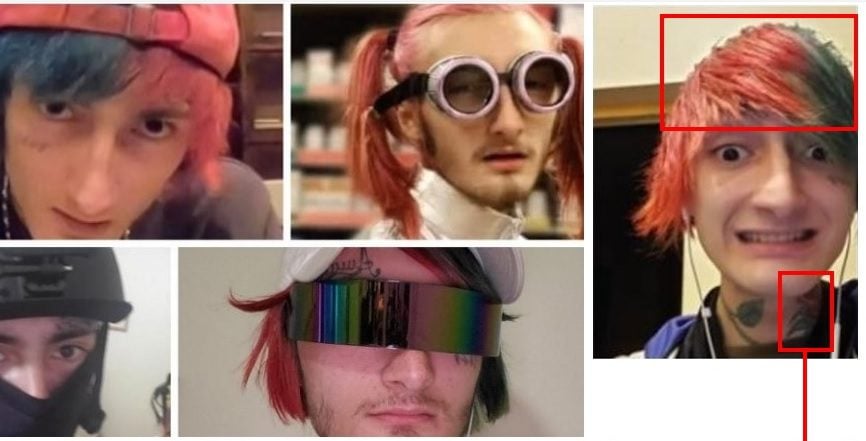
 www.thegatewaypundit.com
www.thegatewaypundit.com

BREAKING EXCLUSIVE: Information Uncovered Overnight Shows Highland Park Shooter, Bobby Crimo, Is Tied to Socialists, Progressives, Antifa and the Occult | The Gateway Pundit | by Joe Hoft
Police arrested Robert ‘Bobby’ Crimo III’, age 22, yesterday following the shooting in Highland Park, Illinois. Crimo killed six and injured over 20 more individuals at the 4th of July parade in Highland Park, Illinois. On Tuesday The Gateway Pundit uncovered information indicating Crimo is a...
https://www.independent.co.uk/news/...crimo-trump-waldo-highland-park-b2116272.html
Highland Park shooting person of interest Robert Crimo went to Trump rally dressed as Where’s Waldo
Robert Crimo was taken into custody on Monday night following an eight-hour manhunt
Rachel Sharp
4 hours ago
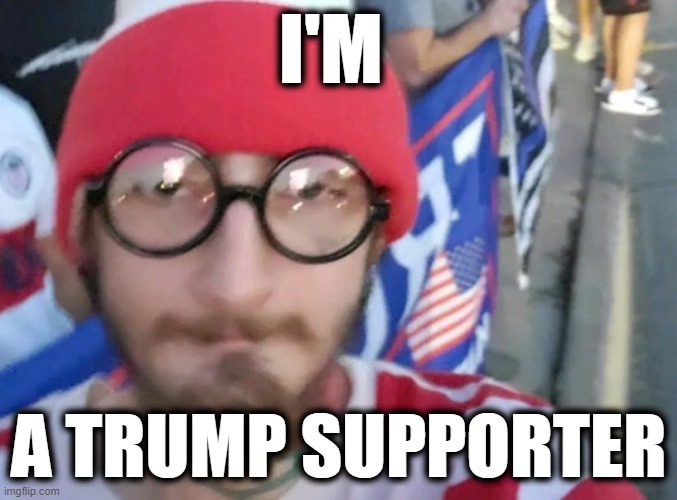
The 22-year-old man arrested over the mass shooting at a July 4 parade in Highland Park once attended a Donald Trump rally dressed up as the character from “Where’s Waldo”.
Highland Park shooting person of interest Robert Crimo went to Trump rally dressed as Where’s Waldo
Robert Crimo was taken into custody on Monday night following an eight-hour manhunt
Rachel Sharp
4 hours ago

The 22-year-old man arrested over the mass shooting at a July 4 parade in Highland Park once attended a Donald Trump rally dressed up as the character from “Where’s Waldo”.
Why are we entertaining this trolling-ass fraud already? A BSC sock account at that??
Leave it to your dumbass to miss the point. He's not a Trump supporter.https://www.independent.co.uk/news/...crimo-trump-waldo-highland-park-b2116272.html
Highland Park shooting person of interest Robert Crimo went to Trump rally dressed as Where’s Waldo
Robert Crimo was taken into custody on Monday night following an eight-hour manhunt
Rachel Sharp
4 hours ago

The 22-year-old man arrested over the mass shooting at a July 4 parade in Highland Park once attended a Donald Trump rally dressed up as the character from “Where’s Waldo”.
What's funny is you pretend to a black dude hiding behind the name a white college football head coach in all posting all this wokeism crap around here. @GhostOfMatchesMalone was on the money about your fraudulent ass. You're just a white boi pretending to be black like me; however, you easily gave yourself away. GTFOH!!
Still think slavery started after the civil war?
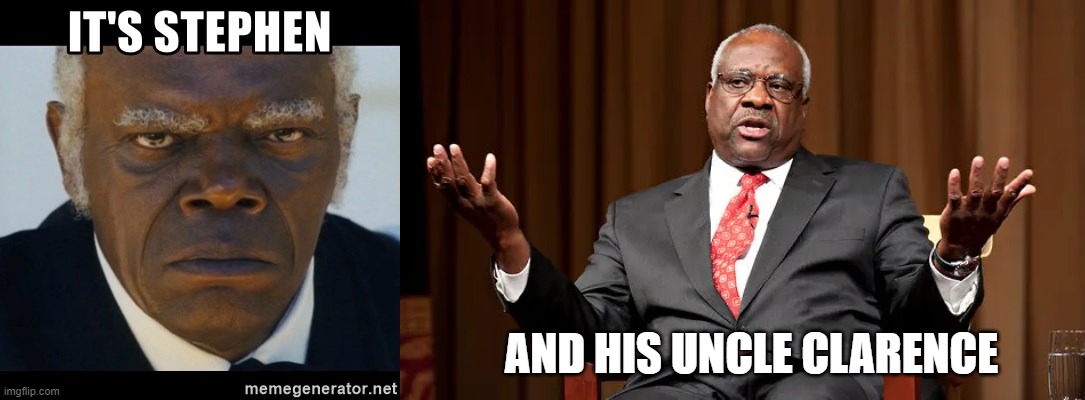
Weirdo
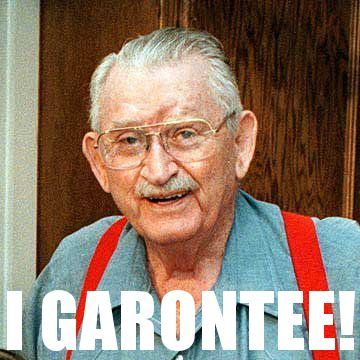
Pin by Darren Lay on Louisiana | Louisiana, Cajun chef, Cajun
Feb 7, 2014 - This Pin was discovered by Darren Lay. Discover (and save!) your own Pins on Pinterest
Leave it to your dumbass to miss the point. He's not a Trump supporter.
Guess you "missed" this part of the article...
Mr Crimo was also pictured in a Chicago Tribune story about the rally, where the protest was described as “tense” with supporters and counter-protesters facing off against each other.
Another photo circulating online shows Mr Crimo wrapped in a blue Mr Trump flag.
It has also emerged that Mr Crimo’s father, Bob Crimo, only follows one account on Twitter – an archived account of Mr Trump’s tweets.
Mayor Nancy Rotering, who took on and beat Mr Crimo’s father Bob Crimo for the role, said on Tuesday that she expects the 22-year-old to be charged over the July 4 attack later today.
Prior to the massacre, Mr Crimo had posted several disturbing videos glorifying violence on his YouTube account.
Crimo has ties to the Democratic Socialists of America as noted by the tattoo on his neck. This is the largest and fastest-growing socialist organization in the US.
Evidence reveals Crimo is not a Trump supporter. He makes fun of Trump and his followers in his social media posts. Crimo attended a Trump event dressed up as ‘Where’s Waldo’ outfit. This appears to be sarcasm and an attack on President 45 who may also be President 47.
His social media posts appear as if he wants to kill President 47.

 www.thegatewaypundit.com
www.thegatewaypundit.com
Evidence reveals Crimo is not a Trump supporter. He makes fun of Trump and his followers in his social media posts. Crimo attended a Trump event dressed up as ‘Where’s Waldo’ outfit. This appears to be sarcasm and an attack on President 45 who may also be President 47.
His social media posts appear as if he wants to kill President 47.

BREAKING EXCLUSIVE: Information Uncovered Overnight Shows Highland Park Shooter, Bobby Crimo, Is Tied to Socialists, Progressives, Antifa and the Occult | The Gateway Pundit | by Joe Hoft
Police arrested Robert ‘Bobby’ Crimo III’, age 22, yesterday following the shooting in Highland Park, Illinois. Crimo killed six and injured over 20 more individuals at the 4th of July parade in Highland Park, Illinois. On Tuesday The Gateway Pundit uncovered information indicating Crimo is a...
https://www.newsweek.com/robert-crimo-highland-park-shooting-trump-rallies-illinois-1721618
One symbol which features prominently in the music video, as well as a number of other social media posts by the suspect, is reminiscent of a sign used by the Finnish far-right group Suomen Sisu.
Crimo was also the administrator of a Discord channel named "SS," the shortened moniker used by the infamous Nazi paramilitary group, the Schutzstaffel, who were mainly responsible for carrying out the numerous atrocities during the Holocaust, reported The Daily Beast.
One symbol which features prominently in the music video, as well as a number of other social media posts by the suspect, is reminiscent of a sign used by the Finnish far-right group Suomen Sisu.
Crimo was also the administrator of a Discord channel named "SS," the shortened moniker used by the infamous Nazi paramilitary group, the Schutzstaffel, who were mainly responsible for carrying out the numerous atrocities during the Holocaust, reported The Daily Beast.
I'll listen to someone who is boots on the ground over some liberal think tank defecating Marxist talking points all over the landscape.As a downtown Chicago resident this city and state is a blue shithole.
So what you are saying is he's a sorry piece of scat? I doubt you'll get an argument from anyone here.https://www.newsweek.com/robert-crimo-highland-park-shooting-trump-rallies-illinois-1721618
One symbol which features prominently in the music video, as well as a number of other social media posts by the suspect, is reminiscent of a sign used by the Finnish far-right group Suomen Sisu.
Crimo was also the administrator of a Discord channel named "SS," the shortened moniker used by the infamous Nazi paramilitary group, the Schutzstaffel, who were mainly responsible for carrying out the numerous atrocities during the Holocaust, reported The Daily Beast.
https://www.newsweek.com/bobby-crimo-antifa-pro-trump-claimswhat-we-do-know-what-we-dont-1721743
Bobby Crimo 'Antifa', pro-Trump Claims—What We Do Know, What We Don't
BY TOM NORTON ON 7/5/22 AT 10:16 AM EDT
The tragic shooting in Highland Park, Illinois, during a July 4 parade has caused both grief and frustration as the U.S. counts yet another mass shooting in 2022.
Suspect Robert "Bobby" Crimo III, 22, was arrested several hours after the tragic incident, which left six dead and more than two dozen injured.
The sheer brutality, much like with the recent shootings in Buffalo, New York, and Uvalde, Texas, precipitated in an outpour of public anger, leading many to speculate about the motivation behind the killings.
However, just as in those incidents, this provides a rich opportunity for others to spread hearsay, conjecture and misinformation.
In the case of Buffalo, its shooter left a wide range of right-wing extremist material online, but rumors still spread about his affiliations to groups that he did not sympathize with, like the Ukrainian army.
In Uvalde, websites such as Twitter and 4Chan helped spread fictitious claims that the culprit was a transgender immigrant, among other baseless statements.
These patterns of half- or mistruths have become something of a trend in the aftermath of mass shootings, with online detectives attempting to piece together character profiles and, in some cases, manipulate or shape the narrative for political means.
As Illinois grieves from Monday's tragedy, photos quickly spread suggesting that suspect Crimo was a Donald Trump or "MAGA" supporter, referencing photos which appear to show him at pro-Trump rallies and sporting Trump memorabilia.
In one video, it appears Crimo may have attended a gathering to see a presidential convoy, although it's not clear from the footage whether Trump was inside the motorcade or when it was shot.
These images would support the idea that Crimo sympathized with the former president and the political movements surrounding him. That said, there is no other verifiable information beyond these photos and videos that explain either the extent or intent of his admiration.
Conversely, others have suggested he had left-leaning sympathies. A series of photos were published which included references to the left-wing Antifa cause, comparing black riot gear Crimo was said to have posed with and the attire used by some Antifa supporters.
Other Twitter users claimed they had found Crimo's Instagram account with posts containing the Antifa flag. However, these Instagram accounts haven't been verified as authentic; searching Crimo's name on Instagram also shows what appears to be a number of copycat or fraudulent accounts set up following the shooting.
Conspiracy theorist subreddits also saw a flurry of posts speculating wildly about his purported 'antifa' leanings, including posts with outright manipulation that involves bundling together several unrelated, out-of-context, or debunked images to imply a connection.
This kind of behavior was rampant after the Uvalde shooting, when users said they had photos and information about the suspect, which in fact had been stolen from others and/or fabricated.
In any case, the information that we have about Crimo is limited. Although Crimo appears to have attended Trump rallies and may have made the effort to see the president in convoy, we still can't yet be certain about his motivation for doing so.
Nor can we state for certain if his political leanings (whatever they may transpire to be) impacted his decision. While it does appear that Crimo may have been supportive of Trump at some point, we don't know what the extent or authenticity of his support was.
We certainly cannot draw any conclusions that his support of a particular cause or person had any bearing on the acts of violence he allegedly committed.
Even in cases where such an influence seems clear-cut (such as that of the shooter in Buffalo), we still cannot say conclusively whether politics were the primary motivation given the typically complex underlying factors that motivate mass shooters.
Attempts to paint mass shooters against political sympathies without sufficient evidence, particularly so quickly after they have committed their crimes, represent a dangerous practice that may fuel misinformation.
Crucially, the counterproductive hyperpartisan fingerpointing tends to overshadow any constructive conversations around mental health and regulation of firearms that could help push towards effective solutions.
It also draws attention to the perpetrators of these crimes, promoting their infamy at the cost of those who have been killed, or even potentially inspiring future crimes.
Bobby Crimo 'Antifa', pro-Trump Claims—What We Do Know, What We Don't
BY TOM NORTON ON 7/5/22 AT 10:16 AM EDT
The tragic shooting in Highland Park, Illinois, during a July 4 parade has caused both grief and frustration as the U.S. counts yet another mass shooting in 2022.
Suspect Robert "Bobby" Crimo III, 22, was arrested several hours after the tragic incident, which left six dead and more than two dozen injured.
The sheer brutality, much like with the recent shootings in Buffalo, New York, and Uvalde, Texas, precipitated in an outpour of public anger, leading many to speculate about the motivation behind the killings.
However, just as in those incidents, this provides a rich opportunity for others to spread hearsay, conjecture and misinformation.
In the case of Buffalo, its shooter left a wide range of right-wing extremist material online, but rumors still spread about his affiliations to groups that he did not sympathize with, like the Ukrainian army.
In Uvalde, websites such as Twitter and 4Chan helped spread fictitious claims that the culprit was a transgender immigrant, among other baseless statements.
These patterns of half- or mistruths have become something of a trend in the aftermath of mass shootings, with online detectives attempting to piece together character profiles and, in some cases, manipulate or shape the narrative for political means.
As Illinois grieves from Monday's tragedy, photos quickly spread suggesting that suspect Crimo was a Donald Trump or "MAGA" supporter, referencing photos which appear to show him at pro-Trump rallies and sporting Trump memorabilia.
In one video, it appears Crimo may have attended a gathering to see a presidential convoy, although it's not clear from the footage whether Trump was inside the motorcade or when it was shot.
These images would support the idea that Crimo sympathized with the former president and the political movements surrounding him. That said, there is no other verifiable information beyond these photos and videos that explain either the extent or intent of his admiration.
Conversely, others have suggested he had left-leaning sympathies. A series of photos were published which included references to the left-wing Antifa cause, comparing black riot gear Crimo was said to have posed with and the attire used by some Antifa supporters.
Other Twitter users claimed they had found Crimo's Instagram account with posts containing the Antifa flag. However, these Instagram accounts haven't been verified as authentic; searching Crimo's name on Instagram also shows what appears to be a number of copycat or fraudulent accounts set up following the shooting.
Conspiracy theorist subreddits also saw a flurry of posts speculating wildly about his purported 'antifa' leanings, including posts with outright manipulation that involves bundling together several unrelated, out-of-context, or debunked images to imply a connection.
This kind of behavior was rampant after the Uvalde shooting, when users said they had photos and information about the suspect, which in fact had been stolen from others and/or fabricated.
In any case, the information that we have about Crimo is limited. Although Crimo appears to have attended Trump rallies and may have made the effort to see the president in convoy, we still can't yet be certain about his motivation for doing so.
Nor can we state for certain if his political leanings (whatever they may transpire to be) impacted his decision. While it does appear that Crimo may have been supportive of Trump at some point, we don't know what the extent or authenticity of his support was.
We certainly cannot draw any conclusions that his support of a particular cause or person had any bearing on the acts of violence he allegedly committed.
Even in cases where such an influence seems clear-cut (such as that of the shooter in Buffalo), we still cannot say conclusively whether politics were the primary motivation given the typically complex underlying factors that motivate mass shooters.
Attempts to paint mass shooters against political sympathies without sufficient evidence, particularly so quickly after they have committed their crimes, represent a dangerous practice that may fuel misinformation.
Crucially, the counterproductive hyperpartisan fingerpointing tends to overshadow any constructive conversations around mental health and regulation of firearms that could help push towards effective solutions.
It also draws attention to the perpetrators of these crimes, promoting their infamy at the cost of those who have been killed, or even potentially inspiring future crimes.
A lot of good his membership will do in prison. You can't make this stuff up. Another Soros-paid attacker.Crimo has ties to the Democratic Socialists of America as noted by the tattoo on his neck. This is the largest and fastest-growing socialist organization in the US.
Evidence reveals Crimo is not a Trump supporter. He makes fun of Trump and his followers in his social media posts. Crimo attended a Trump event dressed up as ‘Where’s Waldo’ outfit. This appears to be sarcasm and an attack on President 45 who may also be President 47.
His social media posts appear as if he wants to kill President 47.

BREAKING EXCLUSIVE: Information Uncovered Overnight Shows Highland Park Shooter, Bobby Crimo, Is Tied to Socialists, Progressives, Antifa and the Occult | The Gateway Pundit | by Joe Hoft
Police arrested Robert ‘Bobby’ Crimo III’, age 22, yesterday following the shooting in Highland Park, Illinois. Crimo killed six and injured over 20 more individuals at the 4th of July parade in Highland Park, Illinois. On Tuesday The Gateway Pundit uncovered information indicating Crimo is a...www.thegatewaypundit.com
Proof that gaslighting fools ignorant ass people like you.https://www.independent.co.uk/news/...crimo-trump-waldo-highland-park-b2116272.html
Highland Park shooting person of interest Robert Crimo went to Trump rally dressed as Where’s Waldo
Robert Crimo was taken into custody on Monday night following an eight-hour manhunt
Rachel Sharp
4 hours ago

The 22-year-old man arrested over the mass shooting at a July 4 parade in Highland Park once attended a Donald Trump rally dressed up as the character from “Where’s Waldo”.
The mental gymnastics you people perform to justify politicizing gun violence is crazy. You have to be dumb or dishonest to believe this nonsense, you can decide which one you are.And are you scared that states run by Republicans lead in gun murders per 100k?
And last I checked the governor of a state has authority over a city mayor
State law has precedence over city ordinance
https://www.llrmi.com/articles/legal_questions/1-oct07/#:~:text=Generally, state statutes and state,contradiction to the state law.
Generally, state statutes and state constitutions regulate the power of a city to enact ordinances. Usually city ordinances that directly conflict with a state statute are not allowed. In other words, state statute usually “preempts” cities from enacting ordinances that are in direct contradiction to the state law.Jul 10, 2018
Did Pataki do anything to lower gun murders in NYC?
How about Eric Greitens in Missouri?
Kemp in Georgia do anything about gun murders?
Is DeSantis & the Florida congress unable to stop a democratic mayor in Florida from enacting stricter gun laws?
How about the governors of SC, NC, OK, TN...
They're just allowing gun violence to occur and not doing anything to stop it
Why aren't these republican governors responsible in your mind?
No, but many are misdiagnosed with ADHD. This is to subdue them to keep them quiet during school. There could be many other deeply rooted problems that were skirted to prescribe Ritalin. For instance: a large % of the population was diagnosed with ADHD that simply had restless leg syndrome or OCD, etc. In most cases of manic depression, the patient will also have anxiety, both usually go hand in hand.
One more item. When Ritalin has been prescribed the long-term side effects can be catastrophic. Many times the patients have become manic after they come off the subdued effects of Ritalin. This can create violent mood swings and hallucinations.
Many ADHD meds are pharmaceutical meth. Guess what happens when little Johnny stops getting prescribed pharmaceutical meth???
Good point.Many ADHD meds are pharmaceutical meth. Guess what happens when little Johnny stops getting prescribed pharmaceutical meth???
The mental gymnastics you people perform to justify politicizing gun violence is crazy. You have to be dumb or dishonest to believe this nonsense, you can decide which one you are.
these dolts just tie themselves in knots. It’s embarrassing to watch
Still think slavery started after the civil war?

The mental gymnastics you people perform to justify politicizing gun violence is crazy. You have to be dumb or dishonest to believe this nonsense, you can decide which one you are.
Gun violence isn't a political issue?
Then why are the conservatives & trumpanzees on here blaming it on democratic run cities?
We once had a federal ban on assault rifles,,,
Has assault weapon violence gone down since the ban expired?
Reducing the number of guns on the street has worked
Expanding gun rights has only lead to more gun violence
Wait a minute
Reports on the day of the massacre said “eyewitnesses” described the suspected shooter “as a white male with long black hair”
How did they know Robert was a male when he was dressed as a female?
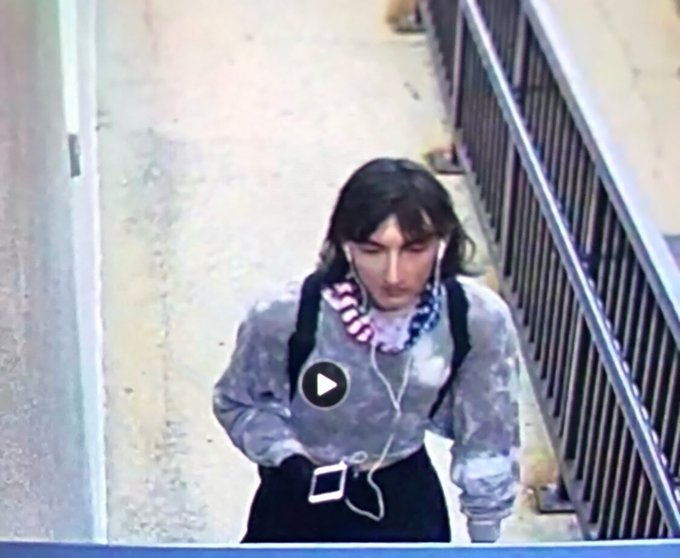
They're obviously biologists.Wait a minute
Reports on the day of the massacre said “eyewitnesses” described the suspected shooter “as a white male with long black hair”
How did they know Robert was a male when he was dressed as a female?

He bought a gun at 22 years old- raise it to 23!
Plus, he might think of himself as a woman. They clearly denied his gender rights by assuming he was male.Wait a minute
Reports on the day of the massacre said “eyewitnesses” described the suspected shooter “as a white male with long black hair”
How did they know Robert was a male when he was dressed as a female?

- Status
- Not open for further replies.
Similar threads
- Replies
- 0
- Views
- 852
- Replies
- 121
- Views
- 8K
ADVERTISEMENT
ADVERTISEMENT